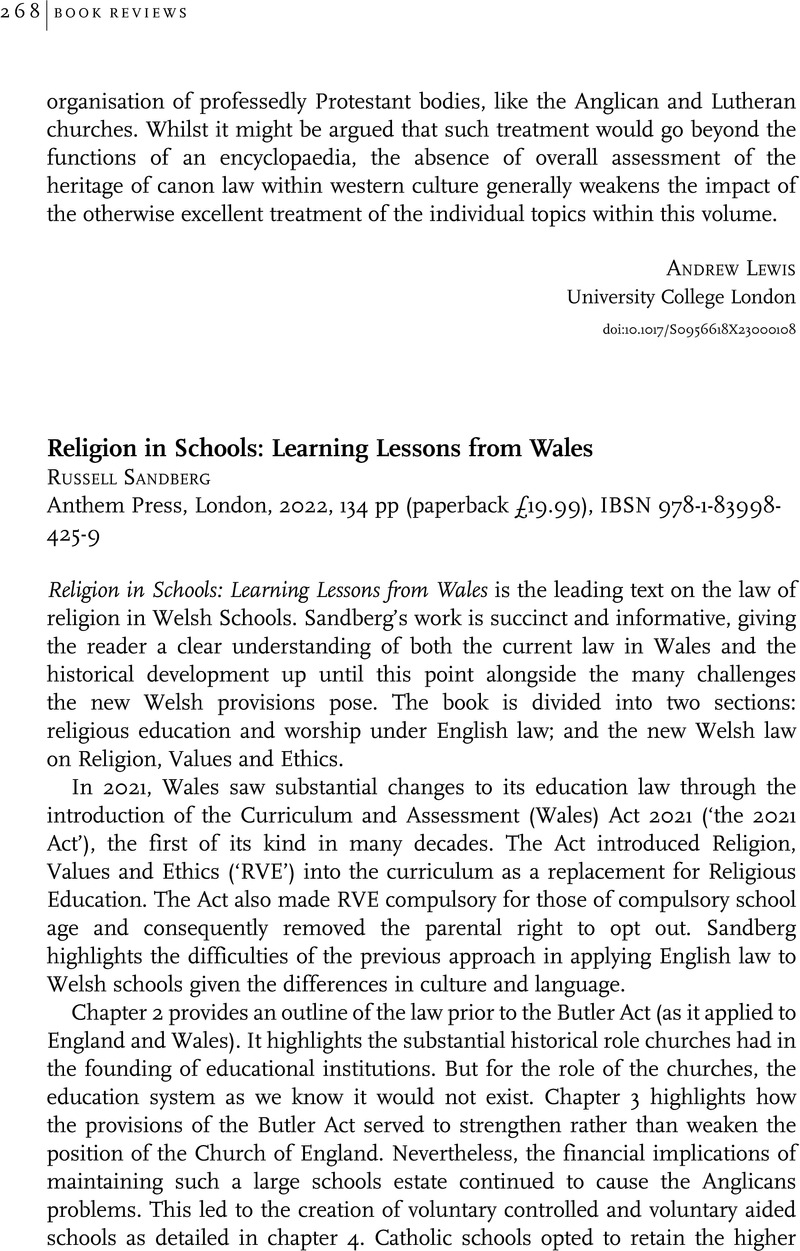No CrossRef data available.
Published online by Cambridge University Press: 28 April 2023

2 In such instances the curriculum must also make additional provision for teaching and learning encompassing the mandatory element of Religion, Values and Ethics that does accord with those provisions of the trust deed or religious tenets.
3 In Wales the only schools with a religious character (or religious designation) are Anglican (VA and VC) and Catholic (VA) schools.